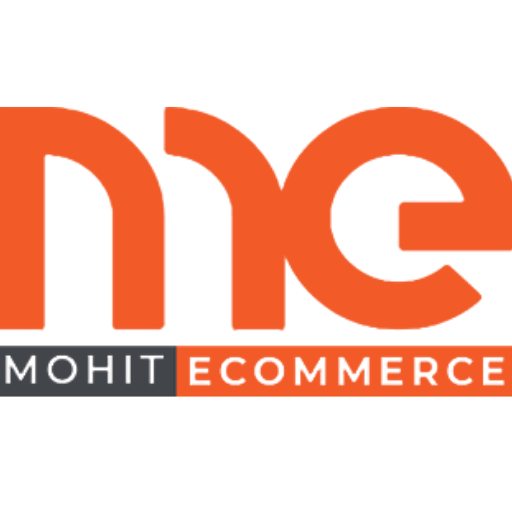To truly optimize your ecommerce business, you need to embrace automation. Through seamlessly integrating automated solutions into your operations, you can access a world of efficiency and productivity. Imagine a scenario where your tasks are streamlined, customer interactions are personalized, and your time is freed up to focus on strategic growth. The key lies in strategically selecting the right tools and processes to automate. Ready to revolutionize your ecommerce game? Keep reading to discover the powerful strategies and tools that can propel your business to new heights.
Key Takeaways
- Implement customer service automation for prompt responses.
- Utilize marketing automation software for targeted campaigns.
- Automate customer interactions with chatbots for efficiency.
- Personalize customer experiences based on behavior.
- Streamline processes to save time and boost productivity.
Understanding Ecommerce Automation

When diving into the world of ecommerce automation, you are starting on a journey that can revolutionize the way you run your online business. Embracing marketing automation tools can streamline your processes, enhance customer interactions, and elevate the overall customer experience. Automating tasks like email marketing campaigns, personalized product recommendations, and targeted promotions based on customer behavior, you can create a more efficient and effective marketing strategy.
Marketing automation allows you to reach your customers at the right time with the right message, increasing the likelihood of conversions. It enables you to nurture leads, engage with customers, and build lasting relationships without constant manual intervention. This not only saves you time but also ensures that your customers receive timely and relevant communication, ultimately leading to improved satisfaction and loyalty.
Incorporating ecommerce automation into your business operations can have a significant impact on your bottom line, driving sales, increasing customer retention, and optimizing your marketing efforts. Leveraging automation tools, you can enhance your overall business performance and stay ahead in today’s competitive online marketplace.
How Does Ecommerce Automation Work?

To understand how ecommerce automation works, envision a seamless system where repetitive tasks are executed automatically, freeing up your time to focus on strategic initiatives that drive growth. Ecommerce automation leverages technology to streamline processes and enhance the customer journey based on customer behavior.
Analyzing data on customer behavior, such as browsing history and purchase patterns, automation can personalize marketing efforts, recommend products, and send targeted emails at the right time. This tailored approach not only improves the overall customer experience but also boosts sales and customer retention.
The benefits of ecommerce automation are vast. It saves time through reducing manual tasks like order processing and inventory management. It increases efficiency through automating repetitive processes, allowing you to scale your business without increasing your workload. Automation also enhances accuracy, minimizing errors in tasks like data entry. Ultimately, automating key aspects of your ecommerce business enables you to focus on strategic decision-making and innovation to drive your business forward.
What Should You Automate in Your Ecommerce Business?

When streamlining your ecommerce business, focus on automating tasks that require multiple personnel for efficiency, processes that involve smoothly moving through various platforms, and actions triggered through specific events like abandoned carts or new orders. Automating these aspects can boost productivity, reduce errors, and guarantee a seamless customer experience. Strategically selecting what to automate will free up your time to focus on growing your business and enhancing overall performance.
1. Tasks That Require Multiple Personnel
How can you streamline tasks that typically demand multiple personnel in your ecommerce business? When it comes to handling customer support options efficiently, consider implementing customer service automation to reduce the necessity for extensive human interaction.
Automating responses to frequently asked questions, categorizing and prioritizing tickets, and utilizing chatbots for initial inquiries can significantly lessen the workload that would conventionally demand a team of customer service representatives. This automation not only saves time but also ensures a consistent level of service and response accuracy.
Moreover, exploring tools that enable personalized customer interactions at scale can help replicate the personal touch that multiple personnel would provide. Utilizing customer data and AI-driven algorithms, you can tailor recommendations, promotions, and communication to individual customers, enhancing their shopping experience without a large customer service team’s need. Automating these tasks that usually involve multiple personnel can boost efficiency, maintain high service standards, and allocate resources strategically in your ecommerce business.
2. Processes Involving Several Platforms
When managing an ecommerce business that operates across multiple platforms, automating processes involving several platforms can greatly enhance efficiency and streamline operations. Utilizing marketing automation software is vital to effectively managing tasks such as customer segmentation. Through automating these processes, you can guarantee that your marketing efforts are tailored to specific customer segments without the need for manual intervention.
Marketing automation software allows you to create targeted campaigns based on customer behavior, purchase history, and preferences, maximizing the impact of your marketing strategies. This automation streamlines the process of reaching out to customers on different platforms, ensuring a consistent and personalized experience across all touchpoints.
Automating ecommerce tasks related to order processing, inventory management, and customer support across multiple platforms can save time and reduce the risk of errors. Through integrating these processes via automation, you can improve operational efficiency and focus on growing your business rather than managing routine tasks manually. Embracing automation in processes involving several platforms is essential for staying competitive in the rapidly evolving ecommerce landscape.
3. Actions Triggered by Specific Events
To elevate your ecommerce business to new heights, it’s imperative to automate actions triggered through specific events. Automating actions like customer conversations, push notifications, and cart recovery, you can enhance efficiency and drive sales. When a customer initiates a conversation on your website, automate responses to provide instant support and build rapport. Utilize push notifications to engage customers with personalized offers based on their browsing history or previous purchases. Automated cart recovery emails can remind customers of abandoned items and encourage them to complete their purchase, reducing cart abandonment rates.
Automating actions triggered through specific events allows you to engage with customers in a timely and personalized manner, leading to increased conversions and customer satisfaction. Streamlining these processes, you can focus on strategic business decisions and growth initiatives. Embrace automation to create a seamless shopping experience for your customers and maximize your ecommerce potential.
4 Benefits of Ecommerce Automation

When it comes to automating your ecommerce business, the benefits are vast. Through saving time and increasing productivity, you can focus on strategic growth initiatives. Enhancing sales and marketing effectiveness while minimizing errors and redundancies will elevate your customer experience and satisfaction, ultimately driving success in your online business.
1. Saves Time and Increases Productivity
Through implementing ecommerce automation, you can greatly reduce time-consuming manual tasks and boost productivity in your online business. Automating processes such as order fulfillment, inventory management, and customer support, frees up valuable time that can be redirected towards strategic initiatives. This increased efficiency not only saves time but also allows you to focus on enhancing customer loyalty through personalized interactions and targeted marketing campaigns.
Marketing automation tools streamline your promotional efforts, enabling you to reach your target audience more effectively and drive sales. Online businesses that embrace automation often see significant improvements in conversion rates and customer engagement. With automated workflows in place, you can nurture leads, send out relevant content, and track performance metrics without manual intervention.
2. Enhances Sales and Marketing Effectiveness
Through implementing ecommerce automation in your business, you access a powerful tool for enhancing your sales and marketing effectiveness. Utilizing customer segmentation, automation allows you to target specific customer groups with tailored marketing messages. This targeted approach increases the relevance of your communications, leading to higher engagement and conversion rates.
Automation also plays a pivotal role in streamlining email marketing campaigns. It enables you to send personalized emails based on customer behavior, preferences, and purchase history. This level of customization strengthens customer relationships and boosts overall sales.
Furthermore, chatbots integrated into your ecommerce platform can provide instant customer support, answer queries, and guide users through the purchasing process. This real-time assistance enhances the customer experience, increases satisfaction, and ultimately drives more sales.
3. Minimizes Errors and Redundancies
Implementing ecommerce automation in your business provides a significant advantage in reducing errors and redundancies. Automating tasks like inventory management and customer communication can greatly decrease the likelihood of human error. This results in fewer mistakes in order processing, inventory tracking, and customer interactions, leading to smoother operations and increased efficiency.
With ecommerce automation, you can streamline your inventory management processes, making sure that stock levels are accurately monitored in real-time. This helps prevent issues like overselling products or unexpectedly running out of stock, ultimately enhancing customer satisfaction and retention.
Furthermore, automating customer communication through personalized messages and automated responses can help minimize redundancies in your interactions with customers. This not only saves time but also maintains a consistent and professional communication approach across all touchpoints.
4. Elevates Customer Experience and Satisfaction
Enhancing your ecommerce business with automation elevates customer experience and satisfaction to new heights. Utilizing automation tools, you can provide a more personalized experience to your customers, boosting their satisfaction levels substantially. Implementing automated processes allows you to customize product recommendations, promotions, and communication based on individual preferences and behaviors, resulting in a more engaging and relevant interaction with your brand.
Moreover, automation streamlines the customer journey, ensuring a seamless experience from browsing to purchase. Automated order processing, shipping notifications, and customer support responses contribute to a more efficient and satisfying shopping experience for your customers. This streamlined approach not only improves customer satisfaction but also enhances customer retention rates by fostering trust and loyalty.
10 Advantages of Ecommerce Automation

When it comes to automating your ecommerce business, you stand to benefit greatly. Through implementing automation tools, you can improve your workflow efficiency, allocate resources more effectively, and explore further into data analysis for strategic decision-making. Additionally, automation allows for increased scalability, resulting in cost savings on operations and the capacity to expand your business seamlessly.
1. Improved Workflow Efficiency
To streamline your ecommerce operations and boost productivity, integrating automation tools is crucial. Automating repetitive tasks such as order processing, inventory management, and email marketing campaigns, you can greatly enhance workflow efficiency. Automation allows you to focus more on strategic initiatives that drive customer engagement and sales growth.
Automating customer communications, such as order confirmations and shipping notifications, ensures prompt responses and enhances the overall shopping experience. With automation handling these routine tasks, your team can dedicate more time to personalized customer interactions that foster loyalty and drive repeat business.
Furthermore, automation in marketing activities like personalized product recommendations and targeted email campaigns can result in higher conversion rates and increased revenue. Utilizing automation tools to analyze customer data and behavior, you can tailor your marketing efforts effectively, reaching the appropriate audience with the correct message at the appropriate time.
2. Better Resource Allocation
Through harnessing the power of ecommerce automation, your business can achieve better resource allocation, leading to increased efficiency and cost-effectiveness. By automating tasks such as order processing, inventory management, and customer communication, you free up valuable time and resources that can be redirected to more strategic areas of your business. One key aspect of improved resource allocation is the ability to target specific customer segments more effectively. By utilizing segmented lists generated through automation, you can tailor your marketing efforts to different groups of customers, enhancing engagement and boosting sales.
| Advantages of Better Resource Allocation | Description | Benefits |
|---|---|---|
| Enhanced Efficiency | Automating repetitive tasks allows for quicker completion and higher productivity. | Saves time and reduces labor costs. |
| Strategic Focus | Redirecting resources towards core business activities and growth initiatives. | Improves business performance and scalability. |
| Targeted Marketing | Utilizing segmented customer lists to personalize marketing campaigns. | Increases customer engagement and conversion rates. |
3. Enhanced Data Analysis
Harnessing ecommerce automation empowers your business to explore enhanced data analysis capabilities, accessing valuable insights and driving informed decision-making. Utilizing automated tools to analyze customer data, you can gain a deeper understanding of your customer group’s preferences, behaviors, and purchasing patterns. This detailed data analysis allows you to segment customers based on various criteria such as demographics, buying history, or engagement levels.
Segmenting customers enables you to tailor your marketing strategies more effectively, delivering personalized experiences that resonate with different customer groups. With automation handling the data analysis process, you can quickly identify trends, spot opportunities for growth, and optimize your marketing campaigns for better results. This strategic approach not only enhances customer satisfaction but also boosts your business’s overall performance and profitability.
Incorporating data analysis into your ecommerce automation strategy equips you with the tools to make data-driven decisions that drive success in a competitive digital landscape. Leveraging insights gained from automated data analysis, you can stay ahead of the curve and continuously refine your business strategies for maximum impact.
4. Increased Scalability
Amplify your ecommerce business’s potential with the power of automation, specifically focusing on the advantage of increased scalability. Incorporating an automation tool into your ecommerce processes, you equip your business to expand effortlessly as demand grows.
When your operations are automated, scaling up becomes seamless and efficient. This means that whether you’re doubling your product range or experiencing a sudden surge in orders, your systems can easily accommodate the increase without necessitating additional manual input.
Moreover, automation enables you to handle higher volumes of customer inquiries without the need to hire more customer support agents. The automation tool can streamline responses, categorize tickets, and provide instant solutions, ensuring that your customers receive timely and accurate assistance, even during peak periods.
This enhanced scalability not only boosts your operational efficiency but also improves the overall customer experience, leading to increased satisfaction and loyalty. Embrace automation to propel your business towards limitless growth opportunities.
5. Cost Savings on Operations
As your ecommerce business leverages the power of automation for increased scalability, another key advantage emerges: cost savings on operations. Through automating repetitive tasks and streamlining business processes, you can reduce the need for manual labor and human intervention in various aspects of your operations. This results in substantial cost savings for your business, allowing you to reallocate resources to more strategic initiatives.
One area where cost savings become apparent is in your customer support team. Automation tools can manage routine customer inquiries, order status updates, and even basic troubleshooting, decreasing the workload on your support staff. This efficiency not only reduces labor costs but also enhances the overall customer experience by providing faster responses and resolutions.
Furthermore, automating essential business processes such as inventory management, order processing, and marketing campaigns can result in significant cost savings by minimizing errors, reducing processing times, and optimizing resource utilization. By maximizing automation to its full potential, you can drive efficiency and cost-effectiveness throughout your ecommerce operations.
6. Greater Flexibility for Growth
To achieve greater flexibility for growth through ecommerce automation, your business can access a multitude of strategic advantages that propel scalability and efficiency. Embracing automation in your ecommerce processes sets the stage for enhanced customer relationships, valuable customer feedback insights, and streamlined ecommerce operations.
Here are three ways ecommerce automation can drive growth and flexibility:
- Enhanced Customer Relationships: Automated systems can personalize customer interactions, leading to improved engagement and loyalty. Customers appreciate tailored experiences that cater to their preferences and needs.
- Valuable Customer Feedback: Automation tools can efficiently gather, analyze, and act upon customer feedback. This data is invaluable for making informed business decisions and enhancing products or services to meet customer expectations.
- Streamlined Ecommerce Process Automation: Implementing automation in various aspects of your ecommerce operations, such as order processing and inventory management, can free up time and resources to focus on strategic growth initiatives.
7. Seamless Integration with Other Tools
When looking to enhance the efficiency and effectiveness of your ecommerce operations, seamless integration with other tools emerges as a critical advantage for businesses embracing automation. Utilizing ecommerce automation tools that smoothly integrate with your existing systems, such as your marketing automation platform, you can streamline your processes and eliminate the need for manual data entry or switching between multiple platforms.
This integration not only saves you time but also reduces the risk of errors that can arise when transferring data between systems manually. With seamless integration, you can ensure that your data is always up-to-date and accurate, leading to better decision-making and more personalized customer interactions.
Moreover, connecting your ecommerce automation tools with other essential business tools allows you to create a cohesive and interconnected ecosystem that enables you to automate tasks across different departments, improving overall efficiency and productivity. Embracing seamless integration is a strategic move that can drive significant results for your ecommerce business.
8. Streamlined Customer Interactions
Leveraging ecommerce automation tools can revolutionize how you interact with your customers, propelling your business towards unparalleled efficiency and success. When it comes to streamlined customer interactions, automation offers a range of benefits:
- Enhanced Customer Support: Automated responses through chatbots can provide instant assistance to customers, improving satisfaction levels and reducing response times.
- Personalized Communication: Automation allows you to tailor your interactions with customers based on their preferences and purchase history, creating a more personalized experience.
- 24/7 Availability: With automated systems in place, your business can engage with customers round the clock, catering to their needs at any time of the day or night.
9. Faster Order Processing
Revolutionize your ecommerce business with faster order processing through the power of automation. Implementing automated systems in your online store’s shopping cart can reduce the time it takes to process orders, leading to enhanced efficiency and improved customer service.
With automation managing tasks such as order confirmation emails, inventory updates, and shipping notifications, your team can concentrate on more strategic aspects of your business. This streamlined process not only saves time but also reduces the risk of errors, ensuring a smoother shopping experience for your customers.
Quicker order processing means faster fulfillment, which can lead to higher customer satisfaction levels and increased loyalty. Utilizing automation to accelerate this crucial aspect of your ecommerce operations can help you stay ahead of the competition and provide exceptional service that keeps buyers coming back for more.
Integrating automated order processing into your system is a wise investment that will yield improved efficiency and overall business success.
10. Real-Time Performance Monitoring
Monitoring the real-time performance of your ecommerce operations through automation provides a strategic advantage in today’s competitive market. Implementing real-time performance monitoring in your ecommerce business, you can:
- Stay Ahead of Issues: Instantly identify any performance bottlenecks or system failures, allowing you to address them promptly and prevent potential revenue losses or customer dissatisfaction.
- Optimize Customer Experience: Monitor key metrics such as website loading times, checkout process efficiency, and inventory levels in real time to ensure a seamless and satisfying shopping experience for your customers.
- Drive Data-Backed Decisions: Access real-time insights and analytics on sales trends, customer behavior, and marketing campaign performance, empowering you to make informed business decisions quickly and adapt your strategies for maximum growth and profitability.
Examples of Ecommerce Automation Tools
To optimize your ecommerce operations and streamline processes, utilizing a range of ecommerce automation tools can be pivotal. These tools can help you save time, reduce errors, and enhance the overall efficiency of your online business. Here are some examples of ecommerce automation tools that you can consider incorporating into your operations:
| Ecommerce Automation Software | Description |
|---|---|
| Shopify Flow | Automates tasks and workflows within Shopify based on triggers you set up. |
| Klaviyo | Marketing automation tool that helps personalize marketing campaigns. |
| Zapier | Connects different apps and automates workflows between them. |
| Omnisend | Integrates multiple channels for marketing automation like email and SMS. |
Key Features to Look for in Automation Software
When selecting automation software for your ecommerce business, prioritizing key features that align with your specific operational needs is essential. To make sure you make the right choice, consider the following key features:
- Customer Profiles: Look for automation software that allows you to create detailed customer profiles. This feature will enable you to segment your customer base effectively and tailor your marketing strategies to specific groups.
- Automatic Responses: Opt for software that offers automatic responses to customer inquiries or actions. This feature can help you engage with customers promptly, improving satisfaction and boosting conversions.
- Personalized Content: Choose a platform that enables the delivery of personalized content based on customer behavior and preferences. Personalization can greatly enhance the customer experience and drive loyalty to your brand.
Challenges to Consider with Ecommerce Automation
Exploring the world of ecommerce automation presents a myriad of challenges that require astute consideration and proactive solutions. One of the key challenges is effectively handling customer inquiries with automation. While automation can streamline processes, it may struggle to provide the personalized touch that human agents can offer when addressing customer concerns. This gap in personalization could impact customer satisfaction and loyalty if not managed effectively.
Another challenge to navigate is the selection and implementation of the right ecommerce marketing automation software. With the market flooded with options, finding the software that aligns with your business goals and integrates seamlessly with your existing systems can be overwhelming. It is pivotal to conduct thorough research, seek recommendations, and test different platforms before committing to one.
Balancing automation with the human touch is essential to overcome these challenges successfully. Finding the right mix of automation and human intervention in customer interactions can enhance efficiency while maintaining a high level of customer service.
How to Implement an Ecommerce Automation Strategy?
Traversing the landscape of ecommerce automation demands a well-thought-out strategy to maximize efficiency and drive growth. When implementing an ecommerce automation strategy, consider these key steps:
- Embrace Ecommerce Marketing Automation: Utilize tools that streamline marketing tasks like personalized product recommendations, targeted email campaigns, and dynamic pricing adjustments. Through automating these processes, you can enhance customer engagement and increase sales.
- Leverage Email Automation: Set up automated email workflows to trigger based on customer actions, such as abandoned cart reminders, order confirmations, and post-purchase follow-ups. This personalized approach can nurture customer relationships and improve retention rates.
- Harness the Chat Advantage: Implement chatbots to provide instant customer support, answer queries, and guide users through the purchasing journey. Offering real-time assistance can enhance the overall shopping experience and drive conversions.
The Future of Ecommerce Automation
Embracing the continual evolution of technology and consumer expectations, the future of ecommerce automation is poised to revolutionize the way ecommerce businesses operate and engage with their customer base. Advancements in artificial intelligence and machine learning will enable businesses to personalize the customer experience at scale, predicting consumer behavior and preferences with greater accuracy.
Automation will streamline processes such as inventory management, order fulfillment, and customer support, allowing businesses to operate more efficiently and cost-effectively.
In the future, ecommerce automation will focus on creating seamless omnichannel experiences, where customers can interact with brands effortlessly across multiple platforms.
Chatbots powered through AI will provide instant support, personalized product recommendations will enhance cross-selling and upselling opportunities, and automated marketing campaigns will target customers with precision. Through leveraging automation technologies, ecommerce businesses can deepen customer relationships, drive sales, and stay ahead of the competition in the dynamic digital marketplace.
How MohitEcommerce Can Help in Ecommerce Automation?
As your ecommerce business gears up for the future of automation, leveraging the expertise of MohitEcommerce can be a game-changer. MohitEcommerce offers cutting-edge solutions to streamline your operations and enhance customer experience. Here’s how they can help:
- Cart Emails: MohitEcommerce automates personalized cart abandonment emails, enticing customers to complete their purchases. This proactive approach boosts conversion rates and fosters customer loyalty.
- Customer Profile: Utilizing advanced algorithms, MohitEcommerce creates detailed customer profiles based on behavior and preferences. This data enables targeted marketing campaigns and a more personalized shopping experience.
- Chatbot Advantage: Implementing chatbots powered through MohitEcommerce allows for 24/7 customer support, instant responses to inquiries, and efficient issue resolution. This not only improves customer satisfaction but also frees up valuable human resources for more strategic tasks.
With MohitEcommerce’s expertise in ecommerce automation, you can revolutionize your business processes, drive sales, and stay ahead in a competitive market.
Success Stories in Ecommerce Automation
Exploring notable achievements in the domain of ecommerce automation reveals compelling narratives of businesses propelling towards efficiency and growth through strategic technological advancements.
One such success story is that of SwiftSolutions, an online retailer that automated its marketing campaigns, resulting in a substantial increase in sales. Utilizing advanced algorithms to analyze customer behavior and preferences, SwiftSolutions tailored its promotional efforts, leading to a significant boost in conversion rates.
Another inspiring tale is that of TechTrends, a tech accessories store that automated its customer email communications. Implementing personalized email triggers based on customer interactions, TechTrends saw a remarkable surge in customer engagement and loyalty. This automation not only saved time but also improved customer satisfaction levels.
Furthermore, TrendyMart, a fashion retailer, optimized its inventory levels through automation. Leveraging predictive analytics and real-time data, TrendyMart was able to anticipate demand accurately, reduce excess stock, and minimize stockouts. This proactive approach not only streamlined operations but also bolstered profitability. These success stories underscore the transformative impact of ecommerce automation on businesses’ efficiency and bottom line.
Best Practices for Effective Ecommerce Automation
To enhance the efficiency and productivity of your ecommerce operations, implementing best practices for automation is crucial. When it comes to enhancing your ecommerce platform, email notifications, and automatic responses, following these best practices can help you achieve outstanding results:
- Personalization is Key: Tailoring your email notifications and automatic responses to each customer can create a customized experience that fosters loyalty and trust. Customers appreciate feeling valued and understood, leading to increased satisfaction and repeat business.
- Streamline Processes: Automate repetitive tasks such as order processing, inventory management, and customer support to free up time for more strategic activities. By streamlining these processes, you can reduce human error and enhance overall operational efficiency.
- Monitor and Analyze Performance: Utilize analytics tools to track the effectiveness of your automation efforts. By measuring key metrics such as response times, conversion rates, and customer engagement, you can identify areas for improvement and fine-tune your automated processes for optimal outcomes.
Who Can Benefit from Ecommerce Automation?
Looking to revolutionize the way you run your ecommerce business? Ecommerce automation can benefit a wide range of individuals within your organization. Business owners can streamline operations, reduce costs, and increase efficiency through implementing automation tools.
Ecommerce store owners stand to gain improved inventory management, simplified order processing, and enhanced customer service through automation. Your marketing team can leverage automation to personalize customer interactions, send targeted campaigns, and analyze data for more effective strategies.
Measuring the ROI of Ecommerce Automation
Ready to immerse yourself in the world of ecommerce automation? When it comes to measuring the Return on Investment (ROI) of your automated processes, there are key areas to focus on for best results:
- Email Marketing Campaigns: Automating your email marketing efforts based on customer segmentation and purchase history can enhance engagement and drive sales. Analyze metrics like open rates, click-through rates, and conversion rates to gauge the effectiveness of your email automation.
- Purchase History Analysis: Utilize automation tools to track and analyze customer purchase history. By understanding buying patterns and preferences, you can tailor your offerings and promotions to increase repeat purchases and customer loyalty.
- Customer Acquisition: Measure the impact of automation on customer acquisition by tracking metrics such as lead conversion rates and cost per acquisition. Automating processes like lead nurturing and follow-ups can streamline the customer journey, leading to improved conversion rates.
Common Mistakes to Avoid in Automation
Common pitfalls can hinder the success of automated processes in ecommerce. One of the most common mistakes to avoid is automating without a clear strategy in place. It’s vital to identify the manual tasks that are consuming a significant amount of time and resources and then focus on automating those first. When diving straight into automation without a solid plan, you risk wasting valuable resources and potentially harming your business operations.
Another mistake to steer clear of is automating repetitive marketing tasks without considering personalization. While automation can streamline marketing efforts, overlooking the importance of personalized messaging can lead to disengaged customers. Make sure that your automated marketing campaigns are tailored to the preferences and behaviors of your target audience to drive better results.
Lastly, failing to regularly review and optimize your automated processes can be detrimental. Ecommerce landscapes are constantly evolving, so it’s crucial to regularly assess the efficiency and effectiveness of your automation strategies to stay ahead of the curve. By steering clear of these common pitfalls, you can maximize the benefits of automation in your ecommerce business.
Integrating AI in Ecommerce Automation
To enhance your ecommerce automation to the next level, consider integrating artificial intelligence (AI) into your processes. AI in ecommerce can revolutionize how you operate in the digital landscape, boosting efficiency and providing valuable insights. Here’s why AI integration is essential:
- Improved Personalization: AI algorithms can analyze customer behavior, preferences, and purchase history to customize shopping experiences. This level of personalization can enhance customer satisfaction and loyalty.
- Anticipatory Analytics: Leveraging AI in automation allows you to predict trends, spot potential issues, and optimize inventory management. This proactive approach helps you make data-driven decisions promptly.
- Enhanced Customer Support: AI-driven chatbots and virtual assistants can manage customer inquiries, offer 24/7 support, and deliver instant responses. This results in faster problem-solving and boosts overall customer satisfaction.
Integrating AI into your ecommerce automation strategy unveils a multitude of opportunities in the constantly evolving digital landscape. Embrace the power of AI to streamline operations, foster growth, and outpace the competition.
Conclusion
As you navigate towards the culmination of automating your ecommerce business, the path to achieving a seamless, efficient operation becomes clearer. Embracing automation in your ecommerce business is not just about saving time and reducing manual work; it’s a strategic move to enhance efficiency and drive growth. Integrating automated processes, you pave the way for streamlined operations, improved customer experiences, and increased productivity.
Efficiency is at the core of automation, allowing you to focus on strategic tasks while repetitive processes are handled seamlessly. With the right tools and systems in place, you can optimize your workflow, minimize errors, and scale your business effectively. Automation empowers you to make data-driven decisions, personalize customer interactions, and stay ahead in a competitive ecommerce landscape.







